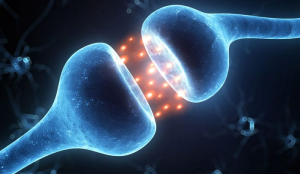A new study has found that dopamine — a neurotransmitter that plays an important role in our cognitive, emotional, and behavioral functioning — plays a direct role in the reward experience induced by music. The new findings have been published in the Proceedings of the National Academy of Sciences.
“In everyday life, humans regularly seek participation in highly complex and pleasurable experiences such as music listening, singing, or playing, that do not seem to have any specific survival advantage. Understanding how the brain translates a structured sequence of sounds, such as music, into a pleasant and rewarding experience is thus a challenging and fascinating question,” said study author Laura Ferreri, an associate professor in cognitive psychology at Lyon University.
“In the scientific literature, there was a lack of direct evidence showing that dopamine function is causally related to music-evoked pleasure. Therefore in this study, through a pharmacological approach, we wanted to investigate whether dopamine, which plays a major role in regulating pleasure experiences and motivation to engage in certain behaviors, plays a direct role in the experience of pleasure induced by music.”
The researchers manipulated the dopaminergic transmission of 27 participants while they were listening to music.
In the three different sessions, separated by one week at least, the experts orally administrated to each participant a dopamine precursor (levodopa, which increases dopaminergic availability), a dopamine antagonist (risperidone; to reduce dopaminergic signaling), and placebo (lactose; as a control).
Read more HERE
Ask me anything
Explore related questions





